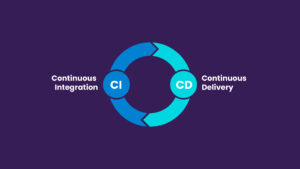How to Select Your Offshore Team and Not Get Duped
June 11, 2015
In my previous posts I’ve talked about the backlog of work companies have. Another post talked about the lack of a large pool of onshore software developers. And as a result, business productivity is taking a hit. Building an offshore team that is dependable and provides consistent quality can be a very viable option for a CTO to provide customers with the best services he/she can offer.
It’s a safe bet to assume most CTO’s and CEO’s have been cold called by an offshore vendor claiming they can provide software development services at one-tenth the cost of onshore work. Let’s think about this. A standard software developer consultant here in Madison, WI costs about $65/hr. At one-tenth the cost that would be less than the minimum wage. Sounds like a good deal, right? Unfortunately, there’s usually a reason it’s so cheap. Some offshoring companies don’t provide the excellent communication and quality oversight you need.
So then how do you go about evaluating and finding a reliable offshore partner? In this blog post, I’ll discuss some of the common aspects used to evaluate an offshore software development vendor, including vendor size, cost, onshore presence and reputation and I’ll also provide some recommendations and questions to ask a potential offshoring partner.
Vendor Size:
In India there are large, very successful software development companies that employ a sizeable workforce in every technology and domain you can name. Examples include Cognizant, Infosys, and Tata.
Does offshoring your software development work with one of these giants guarantee you a successful project? It probably does. But if you are a small- to medium-sized business, you may not want to deal with a large corporation and they may not want to take you on as a client. If the large corporation’s clients are large banks and retailers, (essentially multi-national corporations) you may be too small. Their time and resources are most likely spent on projects of a certain size and budget. They may be most interested in companies like GE or Proctor & Gamble, and not a small regional retailer, insurance company or bank.
You can also go the small company route and find developers on your own through the many developer networks out there. Here are three major players:



This is truly the wild west of offshoring. You don’t know exactly what you’ll get and perhaps you’ve been burned by using someone you found on a network before. That said it is possible to find some gems but you do have to be careful.
Cost:

One big benefit of offshoring your software development work is to save money. Hiring a developer in India is definitely less expensive than hiring an on-site staff developer. But not all cost savings are created equal. As mentioned earlier some vendors claim that they can provide work at one-tenth the cost of hiring your own developer. The lowest bid is usually low for a reason and may not be realistic. Usually it means inexperienced resources and poor infrastructure. This directly translates into a poorly executed project and code that lacks the quality you need.
Check out this great article from The Atlantic about Indian developers and the quality of outsourced code: http://www.theatlantic.com/international/archive/2013/10/behind-the-bad-indian-coder/280636/.
And then there are the big firms with the big costs. Unfortunately, this does not always translate into great quality or flawlessly executed projects either. Here’s an in depth study on the success and failure of offshore projects. We will dive into this study in a later post.
http://www.researchgate.net/publication/221408306_Reasons_for_Success_and_Failure_in_Offshor
_Software_Development_Projects
With a very competitive labor market in India many of the inexperienced resources end up in large firms as well.
Onshore presence:

Onshore presence is a great way to evaluate a vendor. There are many vendors who have an onshore presence (Augment is one of them).
Do they have onshore project managers, architects, designers and business analysts available for the analysis and design phase of the SDLC? Never expect a completely offshore vendor to execute a project well. Doing business analysis remotely, approximately 8000 miles away, is truly a challenge. The value of talking face to face with the user community, understanding their needs and challenges, and designing a software solution together is priceless.
Reputation:
Reputation is sometimes related to the size of a company. After all a company cannot be crazy successful if its reputation were otherwise. There are definitely also some small- to medium-sized vendors who are experts in a particular domain or technology stack and can bring incredible value to your projects.
So how do you find awesome developers and an affordable rate?
Below I list some tips and questions you should ask. Basically, talk to the companies/developers, feel them out, use your gut and think about how your firm fits into their company and resources. Research the cost of offshore resources and think about budget/vendor size. The vendor you select needs to fit your business and the size of your projects. Talk to multiple companies of various sizes. Be wary of the over promising types and there are many. As the old adage goes “If it sounds too good to be true, then it probably is”. Ask for testimonials and references.Do the research and talk to references in detail about projects the vendor has executed. Was the project on time and within budget, what was the quality of the code delivered and how about the communication? References in your business domain are the best.
Talk to the multiple people at the company, including the CEO; Skype interviews are best.
- Find out the specific location in India where the project will be executed. Why is the location important? There are specific regions in India where software developers are available in plenty, which translates into availability of resources and minimize employee turnover risks.
- Make sure your project is a priority. Do you feel a sense of energy and excitement when they talk about your project? Do they get back to you quickly? Is the process and communication clear?
- What is your delivery process for staff augmentation? Do you have a team lead and a project manager?
- Talk to the offshore project manager, team lead or even the team that you will be hiring. Ask them to share their ideas about your staff augmentation or project needs. Have them walk through a typical day or week with you. Are there a lot of touch points throughout the day?
- Ask them what problems they’ve encountered in the past. How did they handle them?
- Ask them about how they onboard a new developer resource or project. How are they involved? Is their process clear?
- Have them describe two or three types of roles that could be offshored.
- Who reviews the code?
- Do they guarantee the quality?
- How does the firm help plan and implement new projects with their developer resources?
In short, be sure to carefully evaluate the offshore vendor. Augment is a Madison based company that helps small- and medium-sized businesses augment their in-house software development team with resources from our offices in South India. We work on a wide array of technologies. Go augment at www.goaugment.io
Related posts

Curious about CI/CD… what it means and why you should care about it?
Augment’s got you covered! You may have heard the term “CI/CD” thrown around in software development discussions and internal meetings, but it’s not frequently discussed as to “why” it matters. CI/CD stands for Continuous Integration and Continuous Delivery (or Deployment, depending on the team). It is a set of practices that helps teams deliver code …

Introducing Auggy AI: A Conversational AI Assistant
Embracing AI sounds easy but it’s often hard to know what and how to implement AI. To that end, we built an internal custom AI assistant. Our AI assistant Auggy is built to respond accurately to questions regarding our internal policies, manage project tasks, and provide updates on JIRA, to create, and view events, allowing …

Why AI
Why are we excited about AI? There is definitely a lot of hype around AI. The hype is exciting but also deafening sometimes. Everyone feels the pressure to build and engage with AI. It’s magical, life changing. That’s kind of all true. But there is a lot of work to be done to achieve that …

